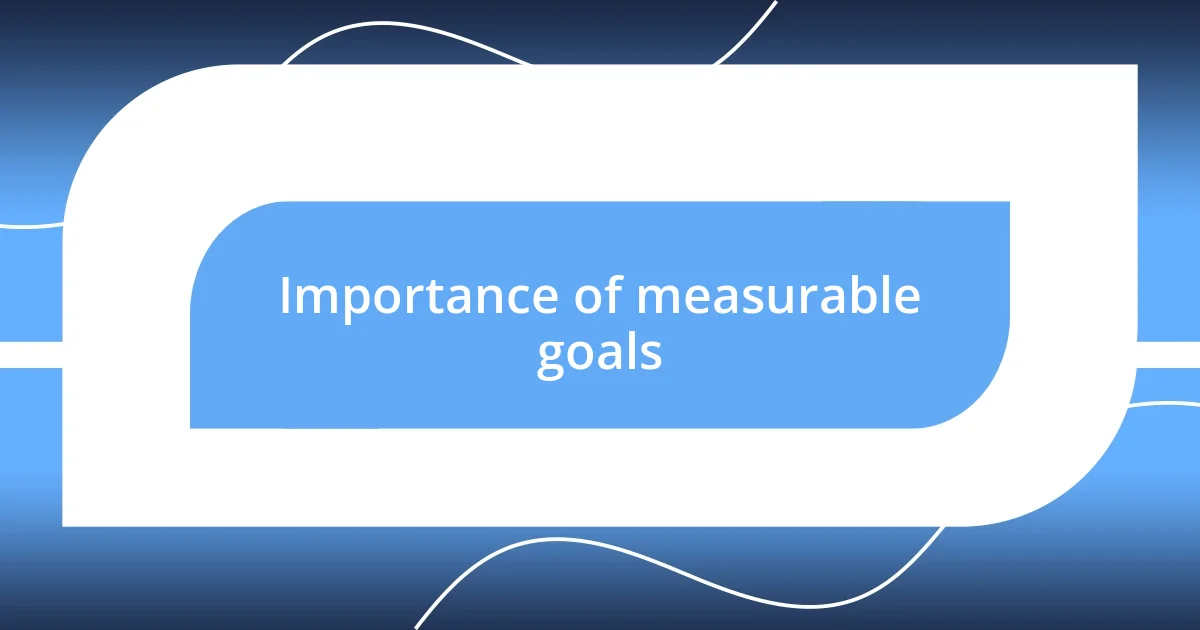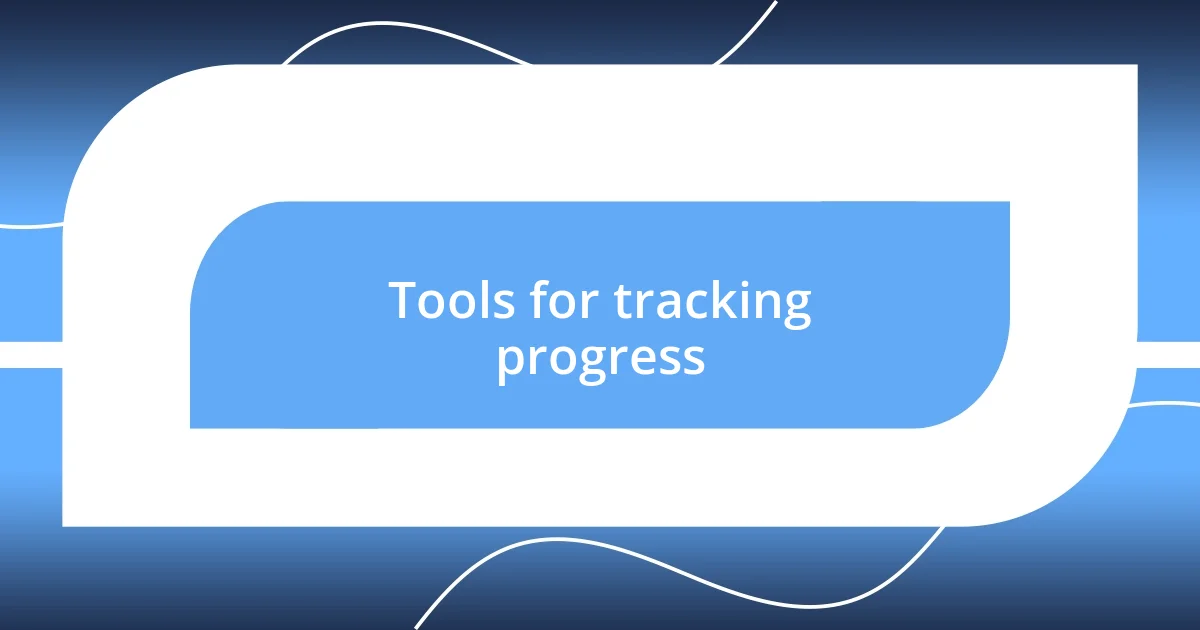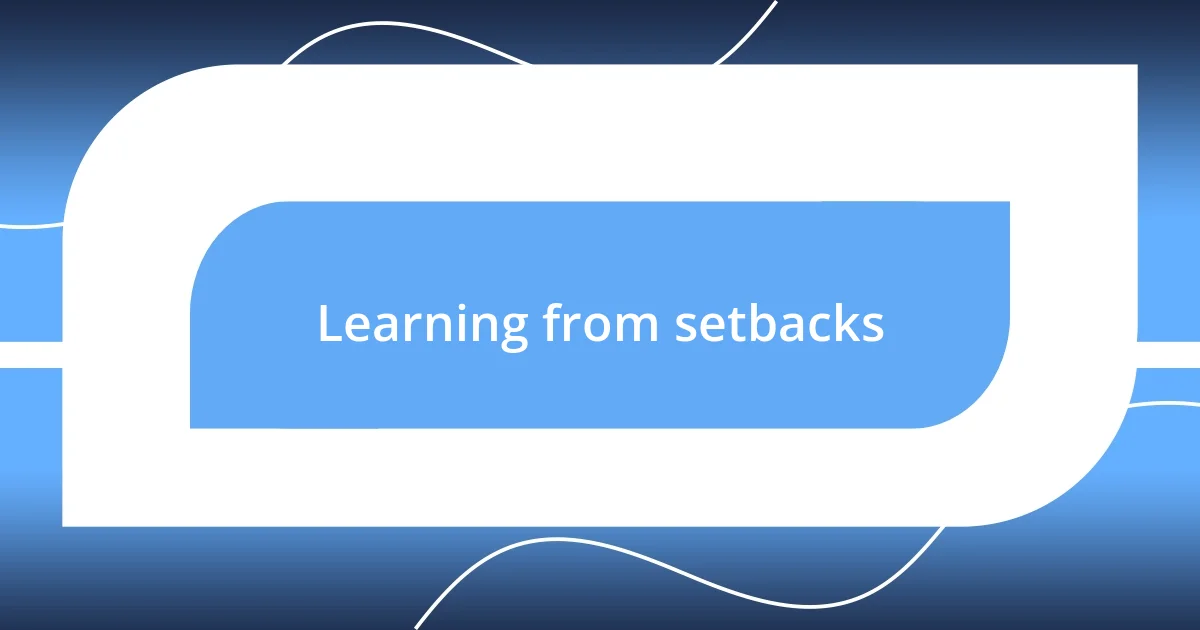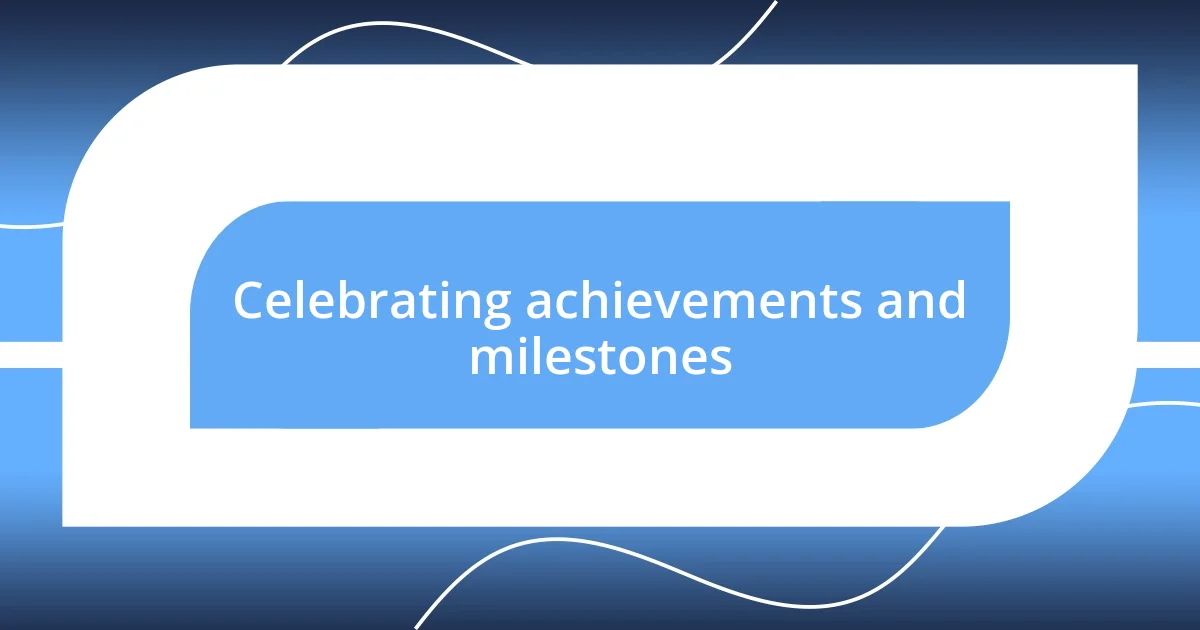Key takeaways:
- Setting achievable, measurable benchmarks tailored to individual circumstances is essential for maintaining motivation and tracking progress.
- Utilizing diverse tools and methods, such as habit tracking apps and data visualization, enhances accountability and helps in recognizing milestones.
- Learning from setbacks and celebrating achievements, no matter the size, fosters personal growth and keeps the momentum toward future goals.

Understanding benchmark setting
Benchmark setting is more than just establishing numbers; it’s about creating a compass for your goals. I remember when I first started tracking my personal productivity. I set unrealistic benchmarks and quickly felt overwhelmed, which taught me the importance of setting achievable, realistic targets. How do we really determine what is feasible?
One crucial aspect of benchmark setting is understanding the context. For instance, I once struggled to compare my progress with peers in different environments. It hit me that benchmarks are most effective when tailored to individual circumstances and objectives. Reflecting on your specific situation can reveal whether your benchmarks are actually meaningful.
Creating benchmarks doesn’t have to feel like comparing apples to oranges, either. I learned that breaking down larger goals into smaller, measurable steps can transform my perspective. This approach allowed me to celebrate small successes along the way, which kept my motivation alive. What strategies have you tried to keep your benchmarks aligned with your evolving goals?

Importance of measurable goals
Setting measurable goals is crucial for tracking progress and ensuring accountability. I remember a time when I set out to improve my fitness without specific metrics. I felt motivated initially, but as weeks passed, I realized I had no way to gauge my improvement. This experience underscored for me that measurable goals provide a clear pathway to success and allow for adjustments along the way.
When goals are measurable, it’s easier to recognize milestones and accomplishments. For instance, instead of vaguely aiming to read more books, I decided to track my progress by aiming for a specific number each month. This not only made my goal attainable but also helped me anxiously anticipate my monthly book reviews. These little victories kept my enthusiasm alive and reinforced the importance of measuring progress.
Lastly, measurable goals foster a sense of direction and help prioritize tasks. I’ve learned that when I outline specific targets, I can focus on actions that lead toward those objectives. This clarity has been invaluable, as it prevents me from feeling lost or overwhelmed by daily responsibilities. Have you ever experienced the relief of knowing exactly what to focus on? It’s a game-changer.
| Aspect | Description |
|---|---|
| Clarity | Measurable goals provide clear definitions of success. |
| Accountability | Tracking progress encourages responsibility for actions. |
| Motivation | Recognition of achievement boosts morale and drive. |

Tools for tracking progress
Tracking progress has become an essential part of my journey toward achieving my benchmarks. Over the years, I’ve discovered a variety of tools that effectively track my progress while keeping me engaged and accountable. I vividly remember when I first attempted to use a simple notebook; it was frustrating to keep up with my daily habits. However, as I explored digital tools, I found apps that not only reminded me of my goals but also visualized my progress in a way that felt rewarding.
Here are some tools that have worked for me in tracking progress:
- Habit Tracking Apps: These apps, like Habitica or Streaks, turn daily goals into fun challenges, letting me see my progress visually.
- Spreadsheets: Using Google Sheets has been a game-changer for me. I can customize them to fit various areas of my life, from fitness to personal development.
- Bullet Journals: This creative approach was both calming and effective during a hectic period in my life. I loved incorporating doodles, which made tracking feel less like a chore.
- Fitness Wearables: Devices like Fitbit or Apple Watch not only track physical activity but also encourage me to stay active through notifications.
- Goal-Setting Frameworks: I often refer to methods like SMART (Specific, Measurable, Achievable, Relevant, Time-bound) to ensure my goals are practical and clearly defined.
The emotional satisfaction of seeing my progress laid out in front of me is a motivator in itself, fueling my desire to keep pushing toward new benchmarks. Each tool serves as a unique way to celebrate mini-victories, reminding me that the journey is as significant as the destination.

Analyzing data effectively
Analyzing data effectively is integral to my goal-setting process. I’ve found that simply collecting data isn’t enough; it must be thoughtfully examined to glean meaningful insights. For instance, when I track my writing habits, I don’t just look at how many words I’ve written. Instead, I analyze the types of content that resonate with my audience. This allows me to adapt and produce more engaging material.
Another thing I’ve learned is the importance of context in data analysis. I once went through a phase where I focused solely on the numbers, but soon noticed that without understanding the story behind those numbers, I was missing out on key opportunities. Now, when I evaluate my progress, I reflect on my emotional and personal journey, asking questions like, “What did I feel during this period?” or “What external factors influenced my performance?” This deeper analysis helps me connect with my goals on a more meaningful level.
It’s also crucial to visualize data in a way that makes insights pop. When I started using data visualization tools, I felt an incredible difference. Transforming raw data into charts or graphs made trends clearer and revealed patterns I hadn’t noticed before. I often wonder, have you ever experienced the “aha!” moment that comes from seeing your data in a new light? That thrill of clarity can propel you forward, allowing you to make informed adjustments to your benchmarks.

Adjusting benchmarks as needed
Adjusting benchmarks is something I’ve had to embrace along my journey. I remember setting an ambitious goal for my writing output, only to realize a few months in that it was simply too high given my responsibilities. I learned that it’s okay to recalibrate; doing so has allowed me to stay motivated rather than feeling defeated. Have you ever found yourself in a similar situation where a goal felt too overwhelming?
There’s a profound sense of freedom in recognizing when a benchmark no longer serves you. Last year, I aimed to read a certain number of books in a month, but life got busy, and I felt pressured. Instead of pushing through and risking burnout, I decided to lower my target. The relief was palpable! Focusing on quality rather than quantity allowed me to dig deeper into each book, enriching my experience rather than rushing through it.
I’ve also found that adjusting benchmarks isn’t just about mitigating stress; it’s about growing. For example, when I switched from running a certain distance to prioritizing my pace, I saw improvements in my fitness. I like to think of adjusting benchmarks as an essential part of personal growth. What adjustments have you made that transformed your approach to reaching your goals? For me, the key takeaway is that flexibility paves the way for real progress.

Learning from setbacks
Learning from setbacks can be a pivotal part of my journey toward personal growth. I recall a time when I missed a significant writing deadline due to unforeseen personal challenges. Instead of wallowing in disappointment, I took it as a learning opportunity. I asked myself, “What happened, and what can I change?” That reflection led me to prioritize my time management skills and seek support when I needed it, turning a setback into a stepping stone.
One of the most enlightening experiences was when I faced criticism on a piece I was particularly proud of. Initially, it stung. However, after some soul-searching, I recognized that the feedback was a chance to refine my craft. I began to embrace constructive criticism instead of shying away from it. Have you ever turned an unfavorable situation into motivation? For me, it reaffirmed that setbacks, though uncomfortable, are often gateways to personal enhancement.
It’s also essential to give ourselves grace when setbacks occur. I remember setting a goal to exercise daily, but life had other plans, and I fell off track. Instead of beating myself up, I decided to view this slip as part of my journey. I learned to reshape my expectations, incorporating manageable routines that fit into my lifestyle. This shift not only reignited my enthusiasm but also helped me cultivate a more sustainable approach to my well-being. How do you respond when facing obstacles? Embracing setbacks as learning moments can make all the difference.

Celebrating achievements and milestones
Celebrating achievements is a vital part of my journey. I vividly remember the exhilaration after completing my first significant writing project. I decided to reward myself with a special outing, and it was such a joyful moment! Do you ever take the time to celebrate your successes? I’ve found that these little celebrations act as motivation to keep pushing forward.
Milestones serve as markers of progress, reminding me of how far I’ve come. Recently, as I reached the 100th page of my book, I couldn’t help but feel a rush of pride. It may seem like just a number, but it symbolizes late nights and countless revisions. How do you acknowledge your own achievements? For me, creating a ritual around celebrating these moments, whether it’s treating myself or sharing my success with friends, adds meaning to the experience.
I think it’s critical to recognize not just the big wins, but also the smaller victories along the way. For instance, I began journaling my minor milestones—days when I met my writing goals, or even when I managed another run without stopping. Each entry felt like a cheerleader pushing me onward. How do you keep track of your progress? When I reflect on those moments, it fuels my passion for every step ahead, reminding me that every achievement, no matter the size, deserves recognition.













